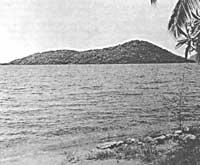The secrets of Lake Malawi
For the first time this winter, scientists dive into Lake Malawi in East Africa. Through remote guided mini-diving, researchers will be able to study the delicate ecosystem of this lake.
This mini-dive has already been used in the great American lakes. But there is a significant difference between the Great Lakes of America and Lake Malawi. While they are very young (12000 years) and biologically quite sterile, this is very old (20 million years) and the prosperity of life goes full.

Lake Malawi is believed to have between 300 and 400 types of freshwater fish. In addition, these fish are special and are not found in other lakes of the world. Some are an important source of protein of the local population, others have high prices in the form of aquarian fish.
These studies aim to know or at least clarify the complex biological interactions that occur in the lake. This aims to avoid the ecological disasters that have occurred in other similar lakes. Lake Victoria, of similar origin and structure, was the entry point of foreign fish in the desire to proliferate fishing. These fish, Nile percas and clupeidos, indigenous, have been practically discarded. In addition, the inhabitants of the area do not like the taste of these new fish.
We hope that these research will not waste the heritage preserved in Lake Malawi.





